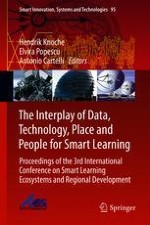2019 | OriginalPaper | Buchkapitel
Identifying Students Struggling in Courses by Analyzing Exam Grades, Self-reported Measures and Study Activities
verfasst von : Bianca Clavio Christensen, Brian Bemman, Hendrik Knoche, Rikke Gade
Erschienen in: The Interplay of Data, Technology, Place and People for Smart Learning
Aktivieren Sie unsere intelligente Suche, um passende Fachinhalte oder Patente zu finden.
Wählen Sie Textabschnitte aus um mit Künstlicher Intelligenz passenden Patente zu finden. powered by
Markieren Sie Textabschnitte, um KI-gestützt weitere passende Inhalte zu finden. powered by
